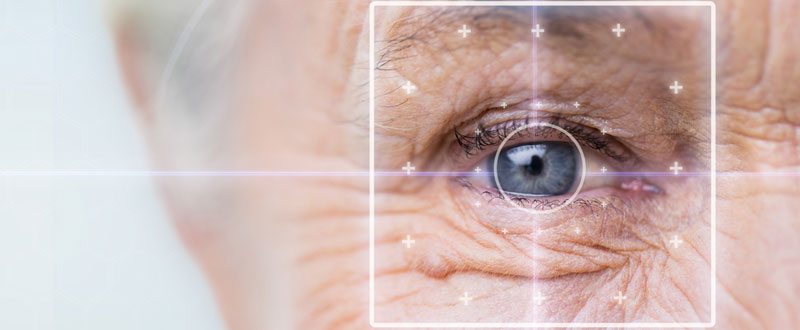LASIK is a permanent solution for nearsightedness (myopia), farsightedness (hyperopia), and astigmatism. The reason for this is that the technology for LASIK consists of raising a flap in the cornea (the clear, dome-shaped part of the eye that is responsible for focusing the light on to the retina), and then reshaping it using a laser. This reshaping involves a computer-guided removal of corneal tissue, or ablation, which is an irreversible process.
Therefore, LASIK treats the existing power of glasses permanently and can be considered a safe solution for specs removal.
What happens over time?
Cataracts
Usually, nothing, as far as distance vision is concerned, you do not need glasses for the longest, until you develop cataracts. Cataract is an age-related change in the natural lens of the eye, which usually develops in the sixties, and results in hazy or cloudy vision. When it happens, your doctor might prescribe glasses, and eventually advice cataract surgery with lens implantation to provide you with perfect vision once again. The previous LASIK is not a contraindication for cataract surgery. Cataracts are not caused by LASIK, so anyone who lives long enough will inevitably get cataracts.
Presbyopia
The changes in your near vision will start earlier. Again, whether you’ve had LASIK or not, the natural crystalline lens of your eye begins to show signs of aging, called presbyopia. This is caused by a hardening of the lens, which means the lens is no longer flexible enough to focus for both, far and near. Presbyopia usually sets in in the early forties, making it difficult for you to focus on reading or near work (especially in dimly lit rooms). Even if you were born with perfect vision for both, near and distance, in both eyes, and continued to have perfect vision without any glasses or LASIK, you will require reading glasses at some point in your forties.
Myopia and Hyperopia
Additionally, because nothing in the human body comes with guarantees, a very, very small subset of patients who have had LASIK, sometimes progress to nearsightedness or farsightedness. Just as your prescription of glasses may naturally change over time, it can do so after LASIK also. To ensure that this does not happen to you, your doctor insists that your refractive power remains stable for at least a year before the procedure, and just not operate on anyone who is less than eighteen years of age (the age after which your prescription for glasses usually stabilizes). In case this occurs, patients may be able to opt for retreatment called LASIK enhancement or touch up. The other options include using glasses (usually the correction required is much less than the original prescription), contact lenses, or one of the refractive surgery procedures, best suited to the condition of your eyes.
Hormonal Changes During Pregnancy and Breastfeeding
Another factor that can change the refractive status of the eye is the hormonal changes associated with pregnancy and breastfeeding. This is why LASIK is contraindicated in pregnant women, and they are asked to wait until up to six to twelve months after cessation of breastfeeding. Some women may have fluctuations in vision during their pregnancy, whether they have had LASIK or not, and they are advised to use prescription glasses if necessary. Usually, the vision comes back to normal in due course naturally. If it doesn’t happen, they may be offered an enhancement procedure.
What can I do to ensure best possible long-term results?
- Be accurate and honest about when the last time your prescription for glasses changed. Eye surgeons advise LASIK after at least 12 months of stable vision, to minimize the potential of needing an enhancement within the first year after treatment, and they rely on your telling them as much. Do not, in your hurry to get freedom from glasses, modify or embellish the duration for which your refraction has been stable.
- For most of us, presbyopia is inevitable. Everyone, at some point in our lives, will need reading glasses. The sooner you can have LASIK/ refractive surgery, provided you are eligible, the longer you can enjoy freedom from glasses. So it is important not to let the myths and paranoia around the surgery discourage you from seeking a consultation with the doctor you trust.
- After LASIK eye surgery, annual eye exams are essential. You may think that once you have perfect vision without glasses, you do not need to visit your doctor. But the truth is that the tests that your doctor performs are far more than just vision and refraction (checking power of glasses). Therefore, an annual checkup is mandatory to ensure continued and overall eye health.

